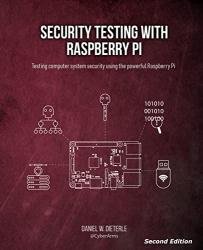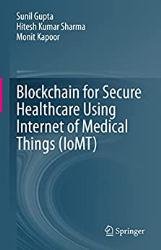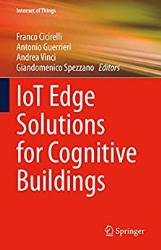- Добавил: literator
- Дата: 17-12-2022, 06:23
- Комментариев: 0
 Название: Security Testing with Raspberry Pi, Second Edition
Название: Security Testing with Raspberry Pi, Second EditionАвтор: Daniel W. Dieterle
Издательство: Independently published
Год: 2022
Страниц: 390
Язык: английский
Формат: mobi
Размер: 24.8 MB
Want to know how to run Kali Linux on a Raspberry Pi? Trying to learn Ethical Hacking on a budget? Want to learn how to make cheap drop boxes? Or how to use a Raspberry Pi as a HiD attack device or for Physical Security? Look no further, this book is for you! Raspberry Pis are a great tool for the security industry. You can install some industry standard security testing tools and applications on a Raspberry Pi and for the most part, they work and function completely identical to their Linux counterparts. In this book, we will see how to use Kali Linux on a Pi. We will also cover some ways to run Ethical Hacking tools in the Raspberry Pi’s native Operating System – Raspberry Pi OS. Then we will just get crazy and check out some Pi specific security images. We will cover how to use an RPi as a Hardware Interface Device attack tool. Lastly, we will see how to use the RPi in physical security applications, like using it as a surveillance camera.

 Название: Blockchain for Secure Healthcare Using Internet of Medical Things (IoMT)
Название: Blockchain for Secure Healthcare Using Internet of Medical Things (IoMT) Название: Smart and Secure Internet of Healthcare Things
Название: Smart and Secure Internet of Healthcare Things Название: Cloud FinOps: Collaborative, Real-Time Cloud Value Decision Making, 2nd Edition (Second Early Release)
Название: Cloud FinOps: Collaborative, Real-Time Cloud Value Decision Making, 2nd Edition (Second Early Release) Название: Infrastructure Leader’s Guide to Google Cloud: Lead Your Organization's Google Cloud Adoption, Migration, and Modernization Journey
Название: Infrastructure Leader’s Guide to Google Cloud: Lead Your Organization's Google Cloud Adoption, Migration, and Modernization Journey Название: IoT Edge Solutions for Cognitive Buildings
Название: IoT Edge Solutions for Cognitive Buildings Название: Mobile and Wireless Communications with Practical Use-Case Scenarios
Название: Mobile and Wireless Communications with Practical Use-Case Scenarios Название: Multi-Fractal Traffic and Anomaly Detection in Computer Communications
Название: Multi-Fractal Traffic and Anomaly Detection in Computer Communications Название: Artificial Intelligence and Cybersecurity: Theory and Applications
Название: Artificial Intelligence and Cybersecurity: Theory and Applications Название: Internet of Things and Cyber Physical Systems Security and Forensics
Название: Internet of Things and Cyber Physical Systems Security and Forensics